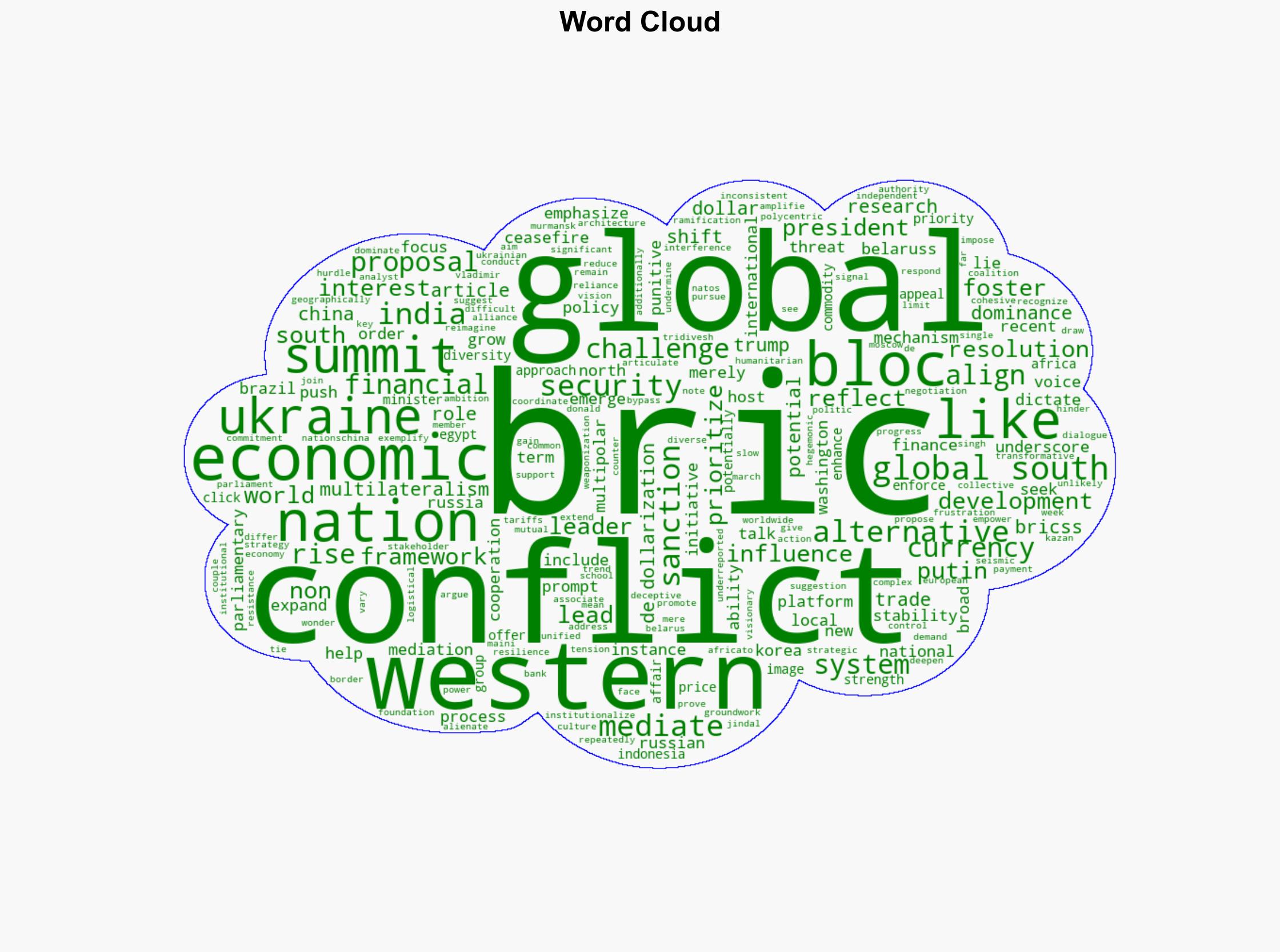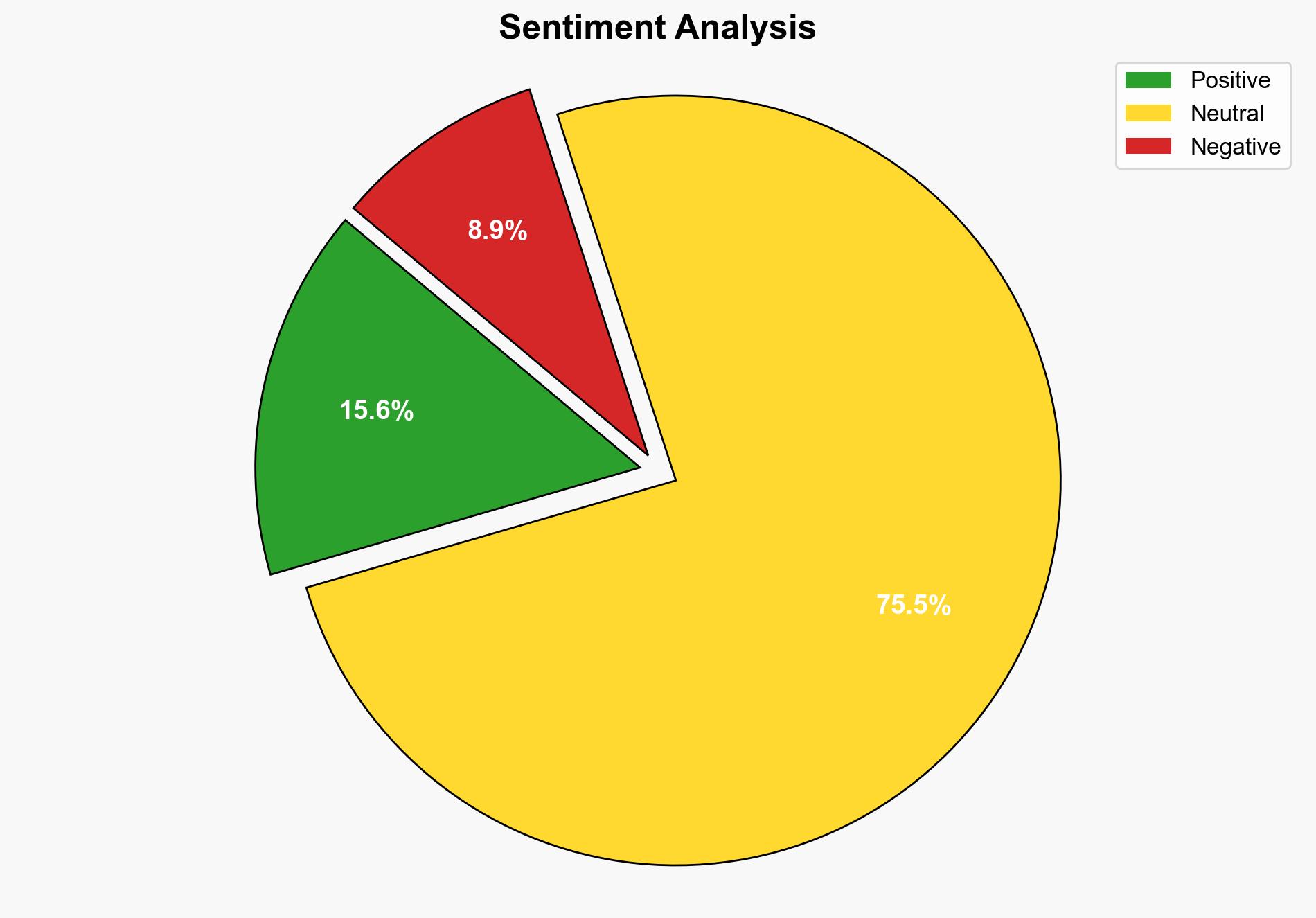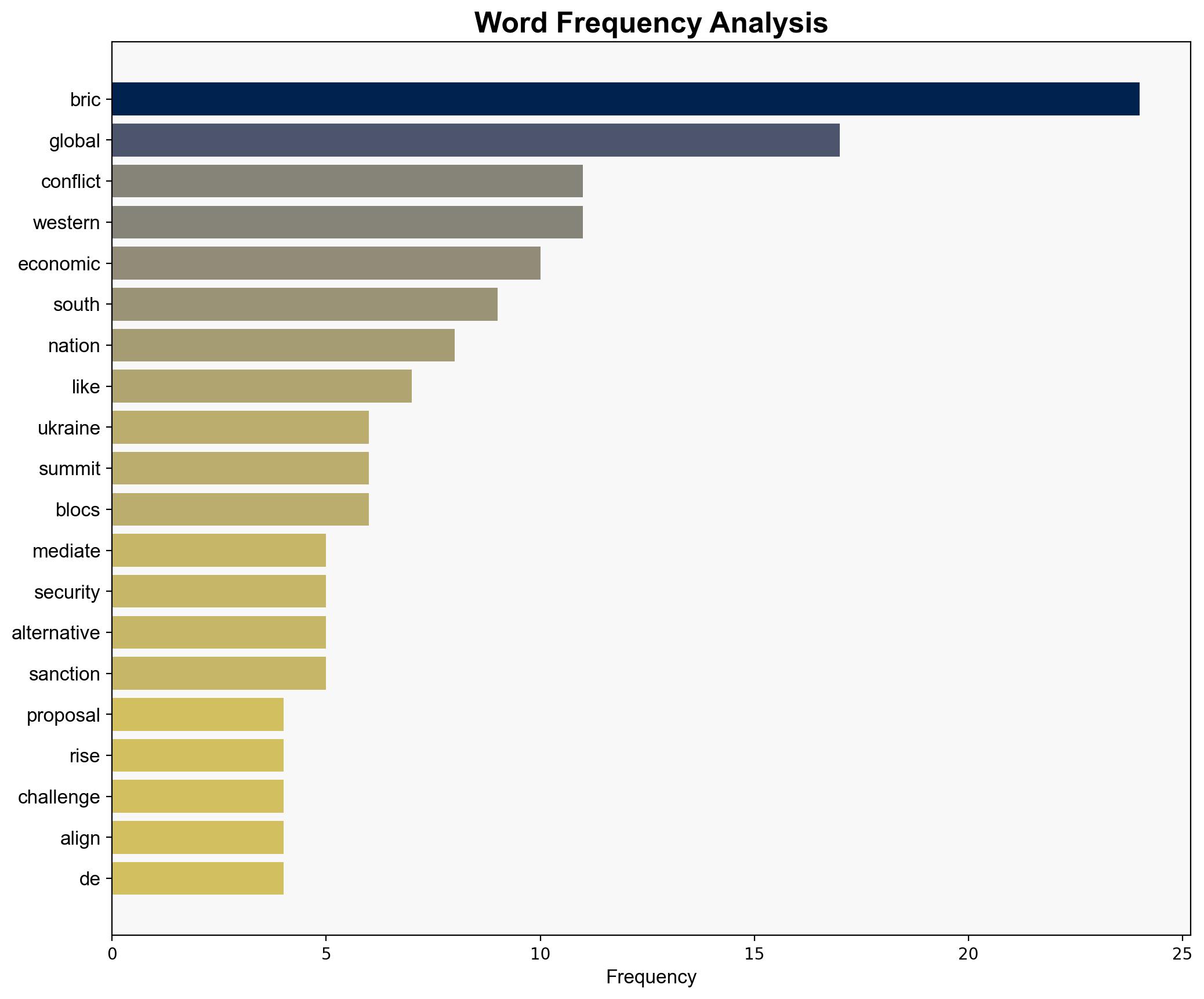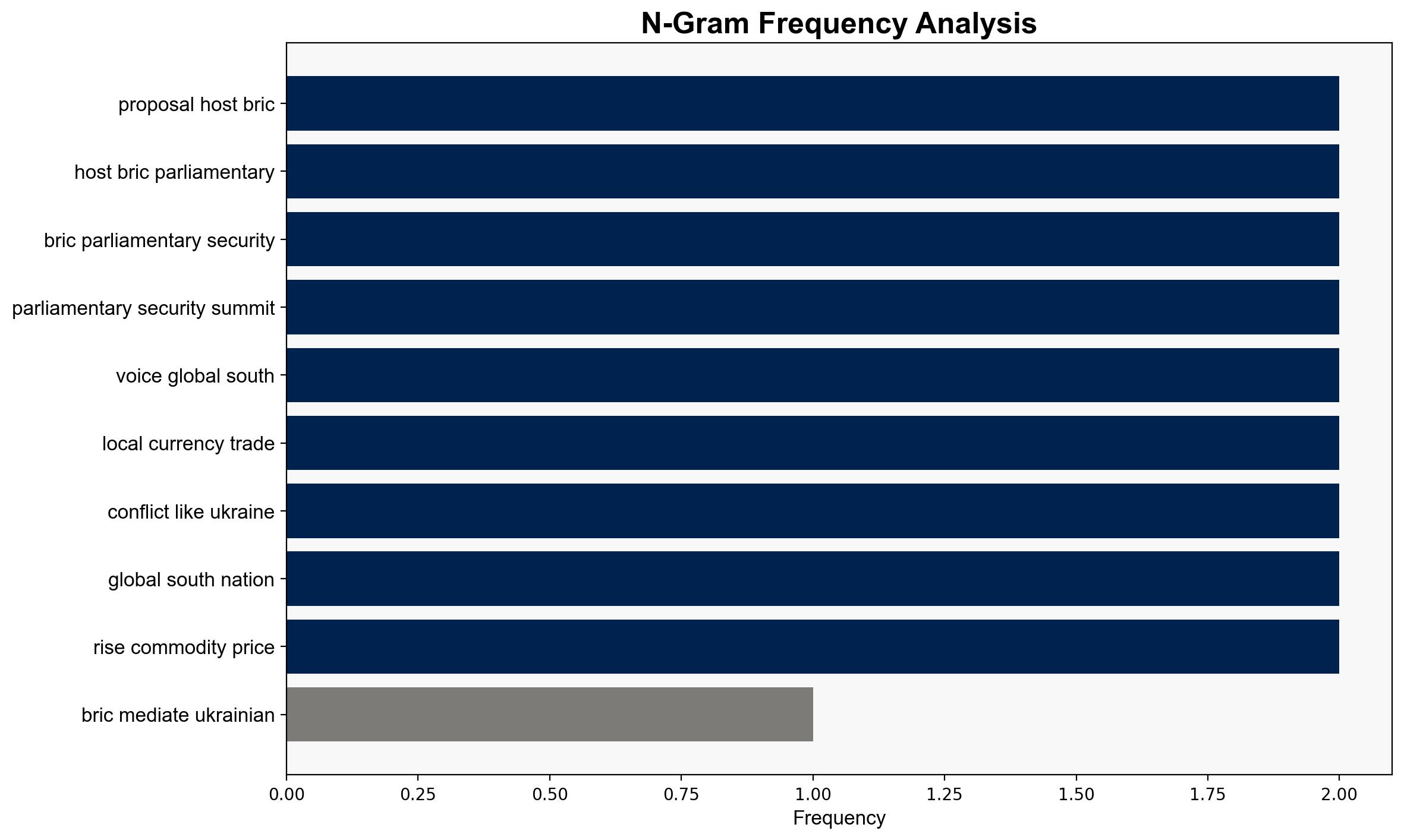BRICS Could Mediate Ukrainian Conflict as It Gains Authority Worldwide – Globalresearch.ca
Published on: 2025-04-17
Intelligence Report: BRICS Could Mediate Ukrainian Conflict as It Gains Authority Worldwide – Globalresearch.ca
1. BLUF (Bottom Line Up Front)
The BRICS bloc, comprising Brazil, Russia, India, China, and South Africa, is positioning itself as a potential mediator in the Ukrainian conflict. This initiative reflects a strategic shift towards a multipolar world order, challenging Western dominance in global conflict resolution and economic systems. The proposal to include North Korea and BRICS nations in ceasefire talks, alongside Belarus’s suggestion for a BRICS parliamentary security summit, underscores the bloc’s growing influence. Key recommendations include monitoring BRICS’s diplomatic engagements and preparing for shifts in global economic practices, particularly regarding de-dollarization.
2. Detailed Analysis
The following structured analytic techniques have been applied:
SWOT Analysis
Strengths: BRICS’s collective economic power and commitment to multilateralism provide a robust platform for conflict mediation.
Weaknesses: Internal political differences and varying global alignments may hinder cohesive action.
Opportunities: Potential to redefine global conflict resolution frameworks and reduce reliance on Western economic systems.
Threats: Resistance from Western powers and potential internal discord within BRICS could undermine initiatives.
Cross-Impact Matrix
The inclusion of BRICS in Ukrainian conflict mediation could influence European security dynamics, potentially reducing NATO’s unilateral influence. Economic shifts towards de-dollarization may impact global trade patterns, affecting regions reliant on the U.S. dollar.
Scenario Generation
Scenario 1: Successful BRICS mediation leads to a ceasefire in Ukraine, enhancing the bloc’s global standing.
Scenario 2: Western opposition to BRICS initiatives results in heightened geopolitical tensions.
Scenario 3: Internal disagreements within BRICS stall progress, maintaining the status quo in global power dynamics.
3. Implications and Strategic Risks
The rise of BRICS as a mediator in global conflicts presents a significant shift in international relations. This could lead to decreased Western influence and a reconfiguration of global economic systems, particularly if de-dollarization efforts gain traction. However, the potential for increased geopolitical tensions poses a risk to global stability.
4. Recommendations and Outlook
- Monitor BRICS’s diplomatic activities and economic policies to anticipate shifts in global power dynamics.
- Engage in dialogue with BRICS nations to understand their strategic objectives and mitigate potential conflicts.
- Prepare for economic adjustments in response to de-dollarization trends, ensuring resilience in financial systems.
- Consider scenario-based planning to address potential geopolitical and economic shifts resulting from BRICS initiatives.
5. Key Individuals and Entities
Vladimir Putin, North Korea, China, India, Brazil, South Africa, Belarus.




